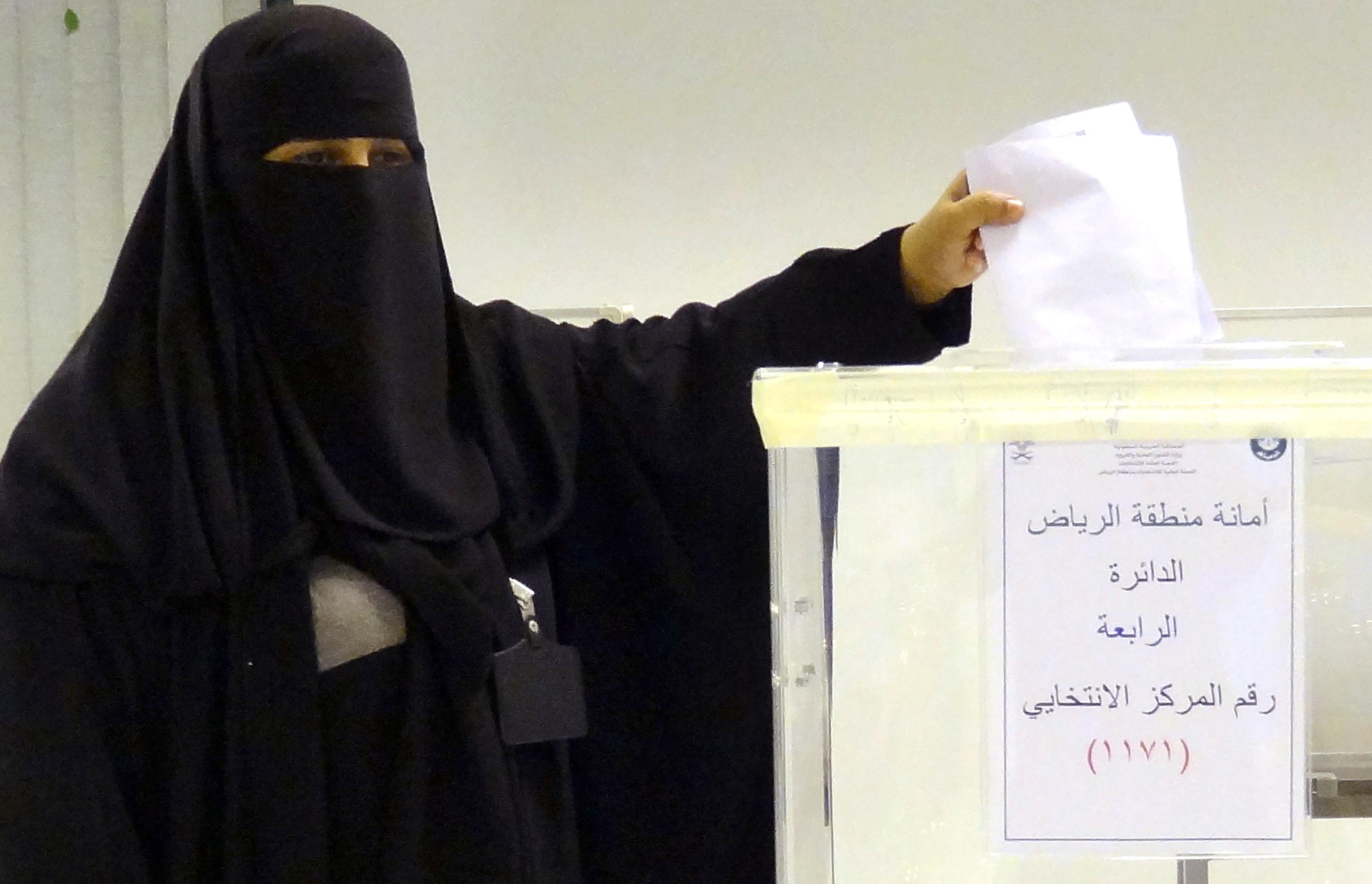Saudi Arabian women voted and ran for office for the first time in the country’s history on Saturday. But they had to be driven to polling stations because women are still not allowed to take the wheel in the country that is an absolute monarchy. And while many celebrated the move to allow women to cast ballots as a small but significant step toward a more equal society, others insisted that the move was nothing but an empty symbol. Around 6,000 men and 980 women were running for local municipal council seats in the election in which 130,000 women and 1.35 million men registered to vote.
“I have goosebumps,” Ghada Ghazzawi, a businesswoman, told the Wall Street Journal as she entered a polling station in the coastal city of Jeddah. “We have been waiting for this day for a long time.”
Even as women were allowed to run for office, candidates were forced to campaign from behind partitions or get a man to give speeches on their behalf. Women also said it was harder for them to register to vote in the first place. Despite all these problems, some insisted that what was important was the big picture. “Saudi women have faced significant obstacles in their fight for their right to vote and run in the municipal council elections, but their participation on December 12 will send a strong signal to Saudi society that women are continuing the long march toward greater participation in public life,” Sarah Leah Whitson, Middle East director for Human Rights Watch, said.
Elections themselves are very rare in Saudi Arabia and there were no elections in the four decades ending in 2005. Since then, there have been two men-only polls in 2005 and 2011. Local councils are the country’s only elected government body and have very limited powers. Still, their significance is also growing. Whereas the councils only had advisory powers before, they now will be able to vote on some local government issues. “This incremental expansion of voting rights has spurred some Saudis to hope the Al Saud ruling family, which appoints the national government, will eventually carry out further reforms to open up the political system,” notes Reuters.
